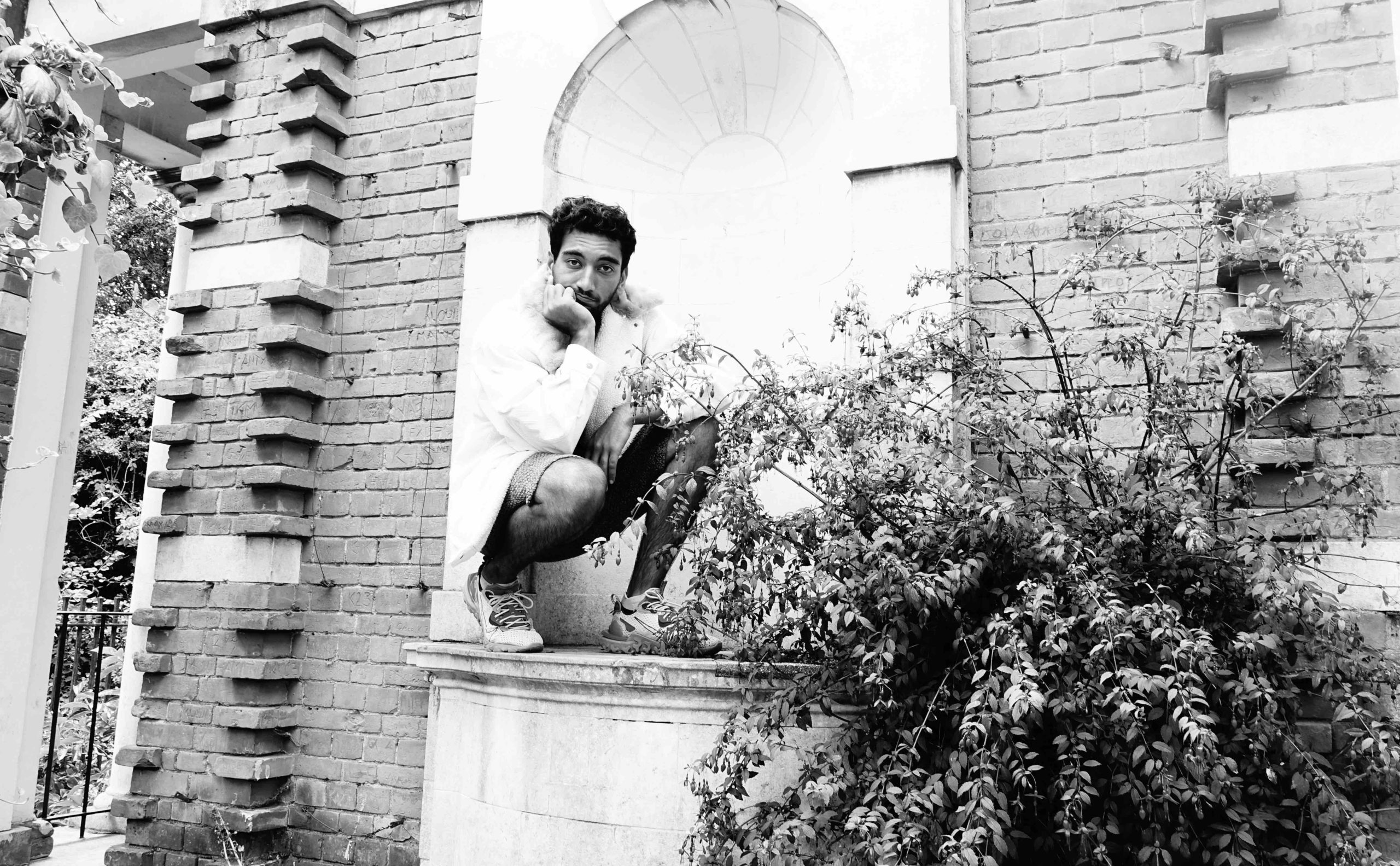This article appears in FLOOD 11: The Action Issue. You can purchase the magazine here. All proceeds benefit NIVA (National Independent Venue Alliance) and their efforts to save independent venues across the United States. #SaveOurStages
BACKSTORY: An award-winning actor—and rapper under the name El Huxley—who’s about to become a familiar face on the music scene and the big screen
FROM: Essex, UK; now living in London
YOU MIGHT KNOW HIM FROM: Informer on BBC or the new HBO series Industry, or his small role in last year’s 1917
NOW: Starring in upcoming films Moghul Mowgli and Last Letter From Your Lover
Nabhaan Rizwan is not the only actor in his family. “My mum’s so famous in India and Pakistan, and even in parts of Leicester [a city in England with a large Indian population], we can’t take her anywhere,” he laughs. He’s not as familiar a face on the screen as his Bollywood star mother quite yet—but he will be soon. After acing his first-ever audition to nab the leading role in BBC’s Informer in 2018, Rizwan’s been working almost non-stop.
Over the last year he’s been building a rather prophetic showreel. Alongside two films, he also stars as Hari in the HBO series Industry, out in the U.S. this November, about a group of young financiers on Wall Street during the 2008 economic crash—the second worst this century after this current, pandemic-induced collapse. And before lockdown he was filming Station Eleven, another show for HBO about the last remaining survivors of a flu-like epidemic.
Rizwan grew up in Essex, a county just outside of London. It didn’t inspire his creative mind, so he moved out when he was seventeen to start building his career. It wasn’t just the art world that enticed him—capital cities are notorious for endless protests, many of which Rizwan attended in earnest, including the Occupy showdown in 2011. There was something about these events that deeply affected him: “There’s a certain energy that comes with a public speech in a square that stretches back thousands of years, and it’s really an unbeatable way of storytelling and communication. That’s essentially what my art is, that’s what music, writing, filmmaking is—the distribution of information through storytelling.”
“The activist community is a really important one to be held up by. They’re the ones holding society up to a standard, they’re the ones always demanding better from everyone, and they’re the movers and the shakers.”
Rizwan’s not professionally trained, but he acquired much of his performative flair whilst attending these rallies. He observed speakers on soapboxes and absorbed their talent for vocal projection, impersonated how they carried themselves on stage, and marveled at the tools they employed to help cut through the noise, both literally and metaphorically. It’s his self-taught style that makes him so captivating to watch.
His own debut performance at a protest took place during the occupation of Central London by social movement Extinction Rebellion (XR), a group that uses nonviolent civil disobedience to take action on the climate crisis. A multi-faceted artist, Rizwan had been working on some new music for a while. During XR’s October rebellion last year, he read out the lyrics to his song “Fantastic Planet” to a crowd of expectant activists and hundreds of police officers against the majestic backdrop of Trafalgar Square. Rizwan dropped his first EP, which features the song as the title track, at the end of July.
“The activist community is a really important one to be held up by,” he stresses, recalling what it was like to stand up there in front of such an informed crowd. “They’re the ones holding society up to a standard, they’re the ones always demanding better from everyone, and they’re the movers and the shakers. So being linked with them in some way is a great opportunity for regular reflection and accountability.” It’s why he brands all his work as political art, in equal measure thought-provoking and thoughtful. What matters to him is intentionality, making careful, deliberate choices about words, style, sound, movement, tone, and expression. He swears by the Solange interlude “Nothing Without Intention:” “That’s a really good motto.”
He also applies this adage when deciding what projects to take on and how to perform those roles. He accepts acting jobs partly based on whether the character exists as more than a stereotype or a token: “I’ve been thinking a lot recently about brown dreams, brown people being able to dream, being able to think cosmically. That’s the thread between all the art I admire and aspire to create.” Discussions of race within the arts are often too shallow. It’s not just about visual representation—being in a show or a film isn’t driving any kind of radical movement if scripts aren’t reflecting depth of character and a range of emotional existences.
Rizwan might not consider himself an activist per se, but he does recognize his role in the field—particularly now, as much of the world is starting to rise up in protest. “It’s important to turn up to the rallies, and more important to have conversations. Is music part of that conversation, or art, or film? Definitely.” FL









